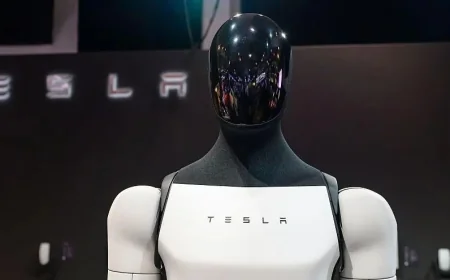Chipmakers and analysts are warning of a memory chip shortage in the consumer electronics and automotive industries next year, as companies prioritize rapidly growing demand in the field of artificial intelligence.
In an earnings report on Friday, the CEO of Semiconductor Manufacturing International Corp., China's largest contract chip manufacturer, said that fears of a memory chip shortage are causing customers to hold back orders for other types of chips used in their products.
According to Google Translate, SMIC co-CEO Zhao Haijun said, "Everyone is hesitant to place too many orders or ship too many goods in the first quarter of next year because they don't know how many mobile phones, cars, or other products the [memory chip industry] can supply."
Analysts say these supply concerns are arising because chipmakers are focusing on advanced memory chips used in artificial intelligence computing, while reducing production needed for consumer products.
"Building AI is definitely consuming a large portion of the available chip supply, and 2026 looks to be even bigger than this year in terms of total demand," said Dan Nystedt, vice president of research at TriOrient.
AI servers primarily run on processors from chip designers like Nvidia. These AI processors rely heavily on a type of memory called high-bandwidth memory, or HBM, which has proven extremely attractive to memory companies like Sky Hynix and Micron.
Nystedt said that memory suppliers are trying to make the most of this AI demand due to the generally high margins, and he also pointed out that AI server companies are willing to pay a significant price for premium chips.
He added, "This could be very bad for PCs, laptops, consumer electronics, and automotive, which rely on affordable memory chips."
However, perhaps a bigger issue is that the memory industry faced a severe slowdown in 2023 and part of 2024, which led to reduced investment in the industry. "They are currently building new capacity, but it will take time to start operating."
Widening Impact
Due to supply shortages, memory companies are reportedly raising the prices of their chips.
Just last Friday, Reuters reported that Samsung Electronics had quietly increased the prices of select memory chips by up to 60% compared to September. Samsung did not immediately respond to a request for comment.
M.S. Hwang, research director at Counterpoint Research, told CNBC, "With rising memory prices and reduced availability, concerns about production bottlenecks are growing."
He added, "Supply shortages are already affecting low-cost smartphones and set-top boxes, but we think the risk could increase."
China is feeling the brunt of the crisis "more acutely" due to its heavy reliance on low-cost devices, but Hwang cautioned that supply shortages are a global problem.
Meanwhile, consumers may bear the brunt of the memory shortage.
In a report on Monday, tech-focused market intelligence and consulting firm TrendForce predicted that the memory industry has entered a "strong price-hike cycle," which could force downstream brands to raise retail prices, putting pressure on the consumer market.
As a result, the research group predicted rising prices and demand pressure for consumer products such as smartphones and notebooks.

 Like
1
Like
1
 Dislike
0
Dislike
0
 Love
0
Love
0
 Funny
0
Funny
0
 Angry
0
Angry
0
 Sad
0
Sad
0
 Wow
0
Wow
0










































